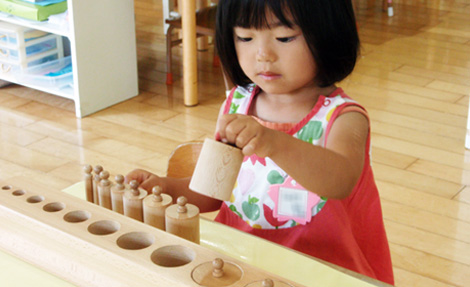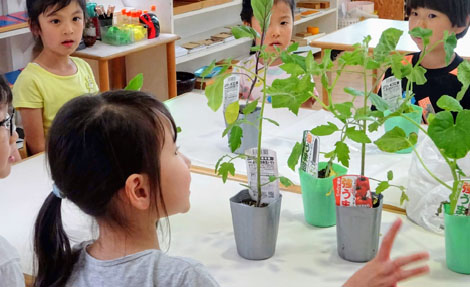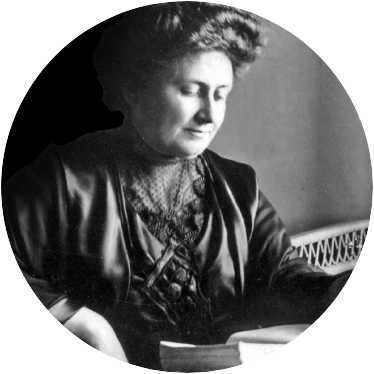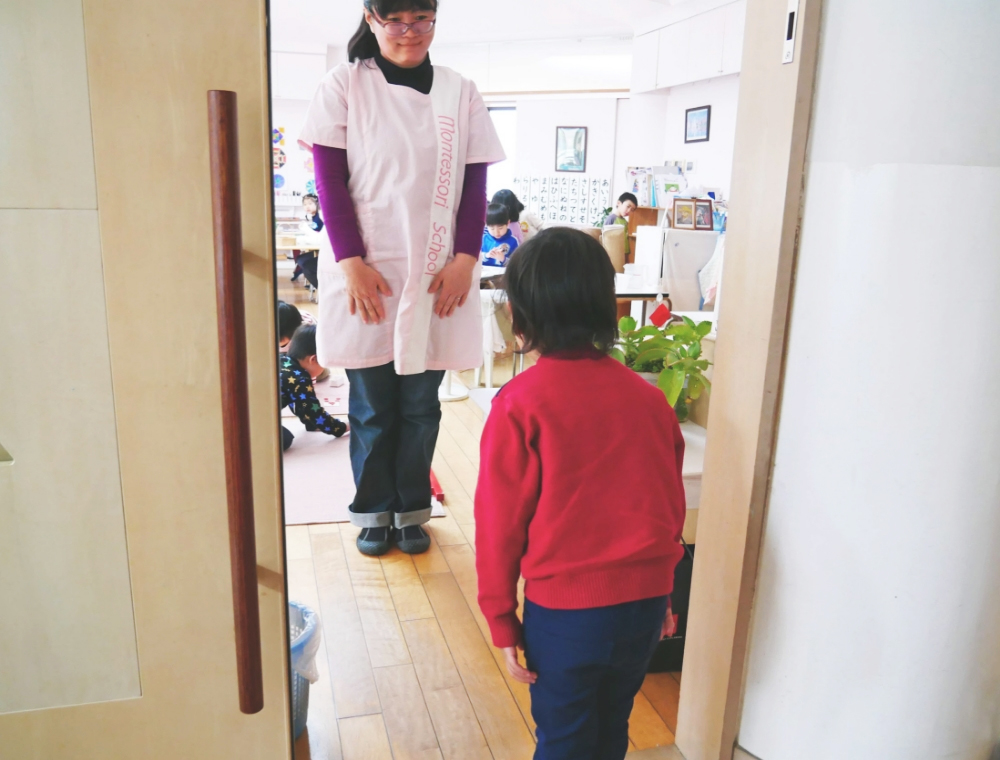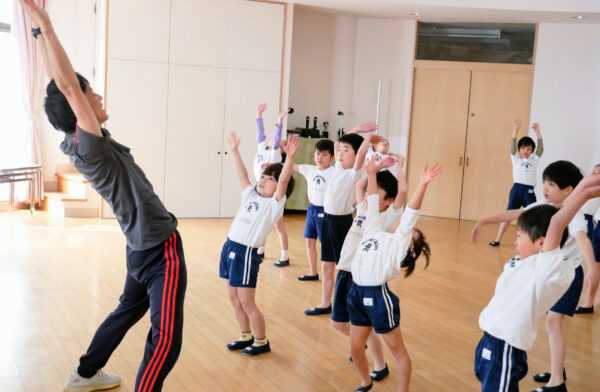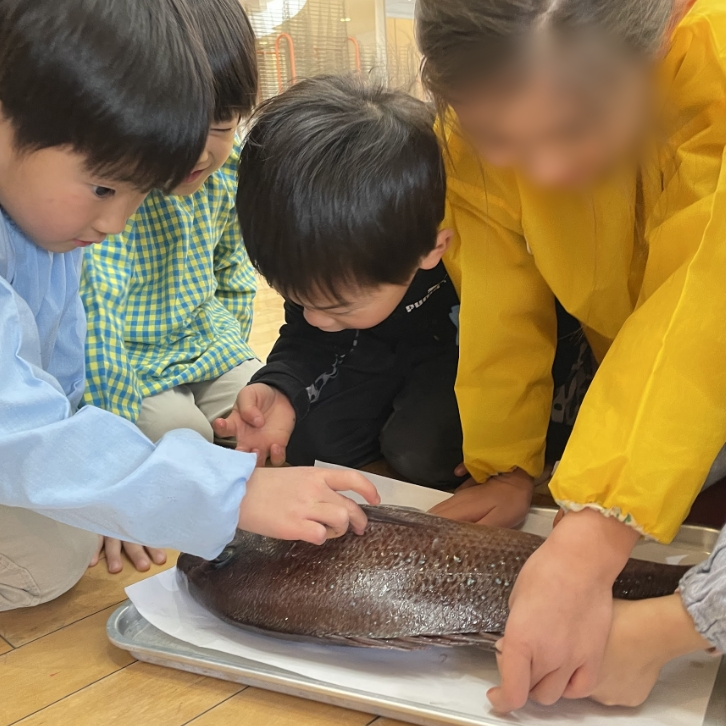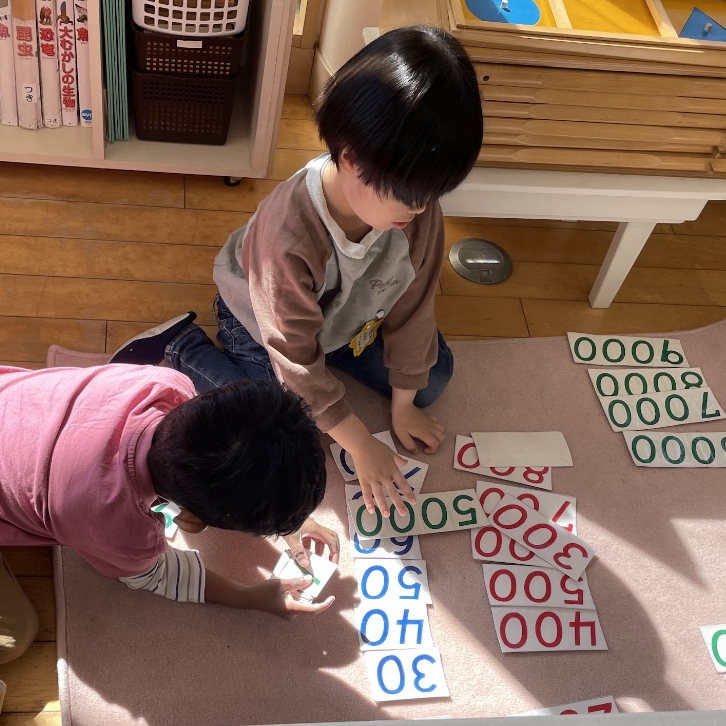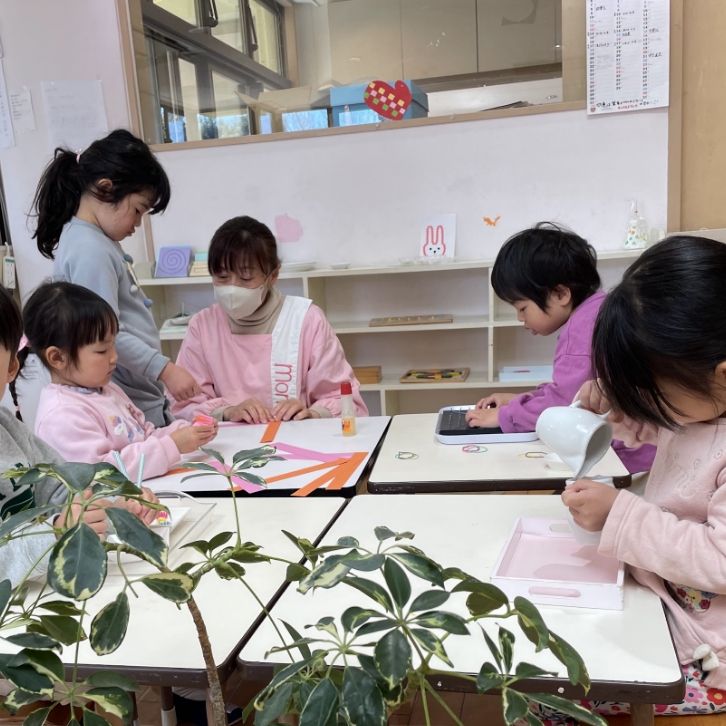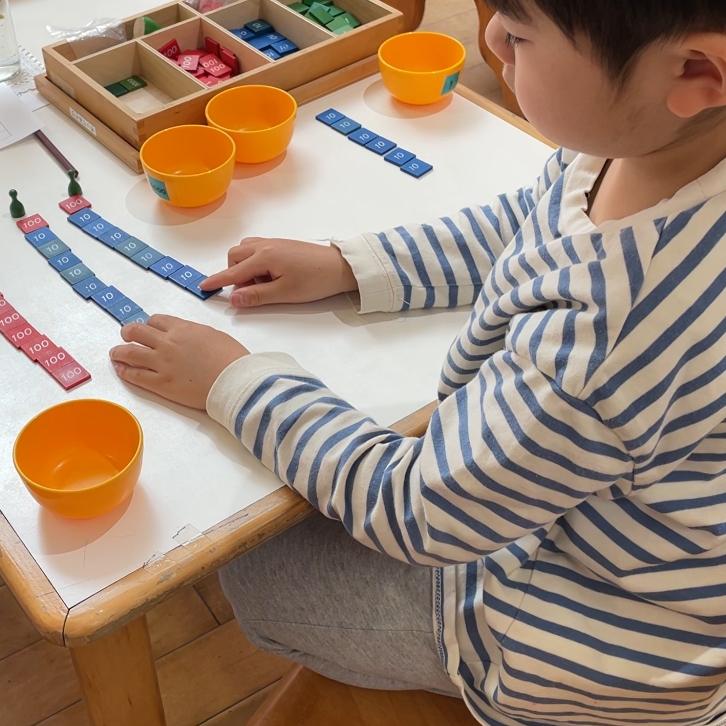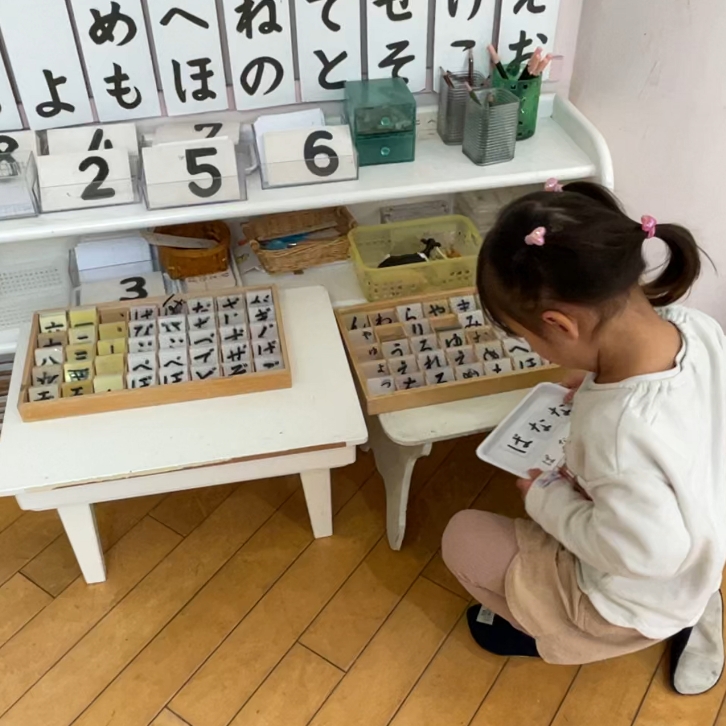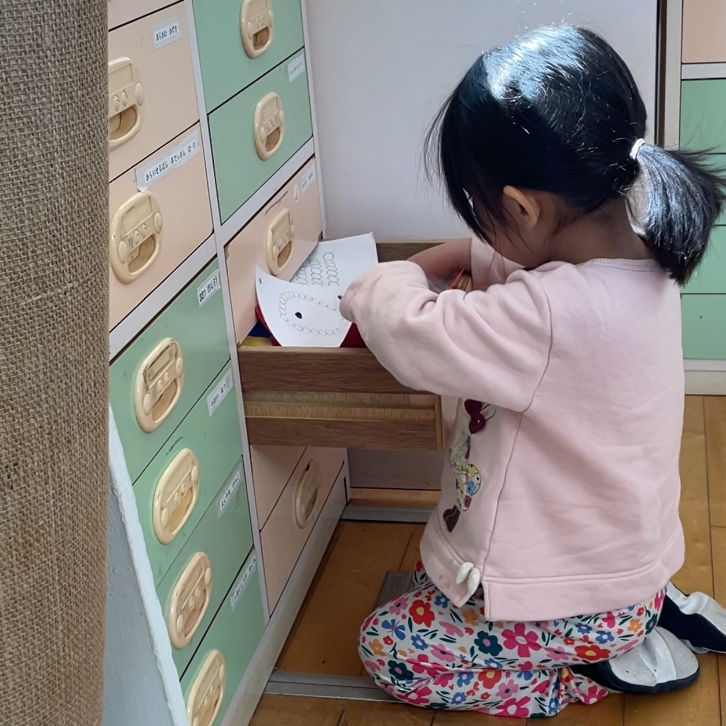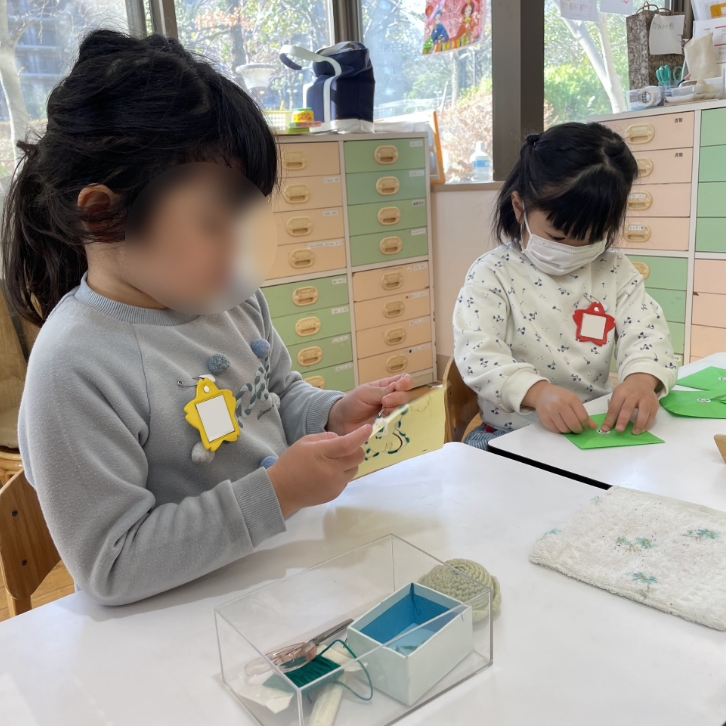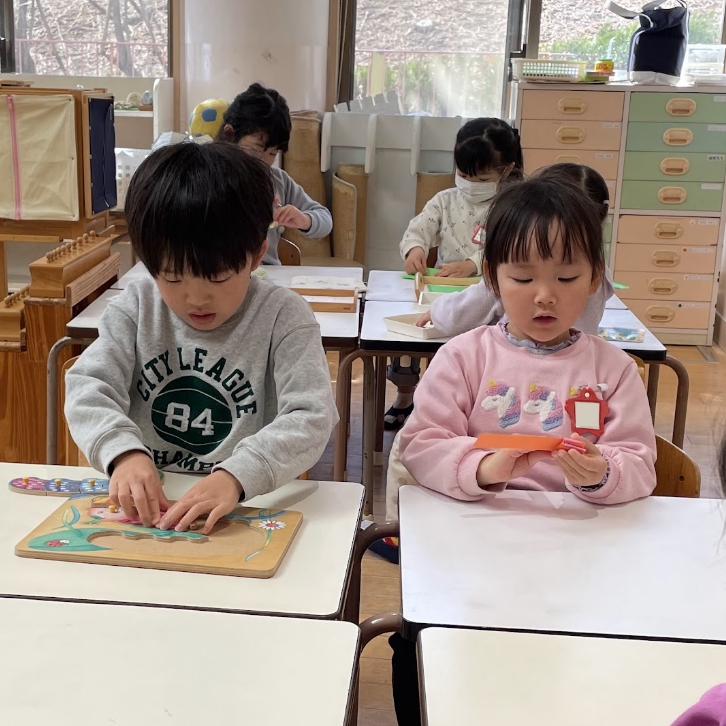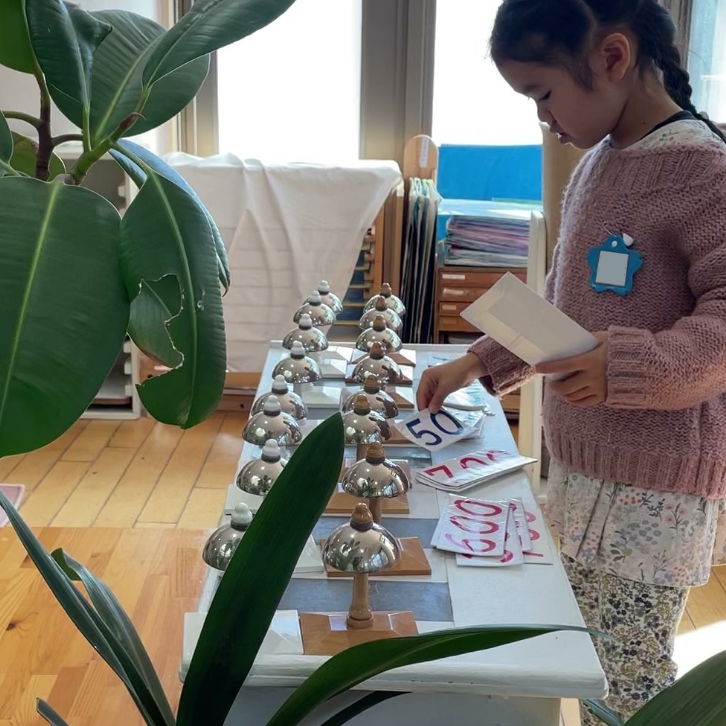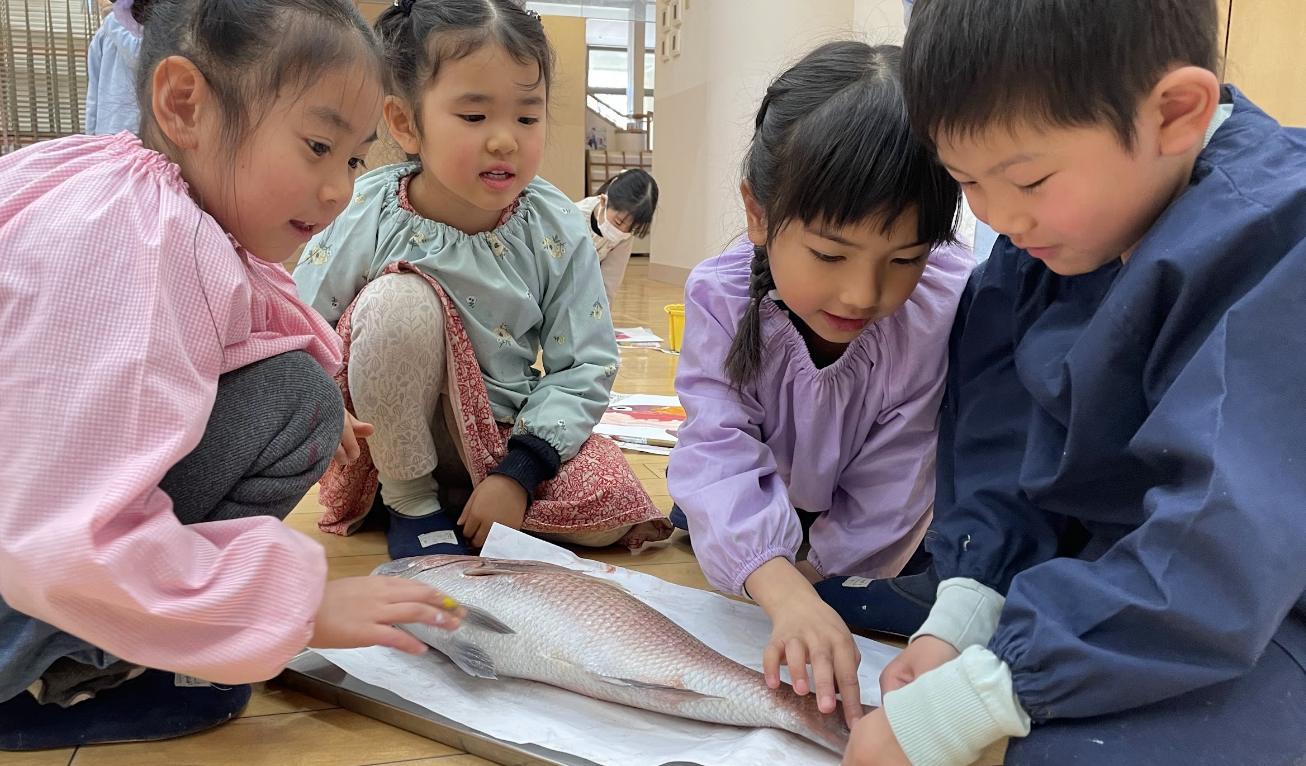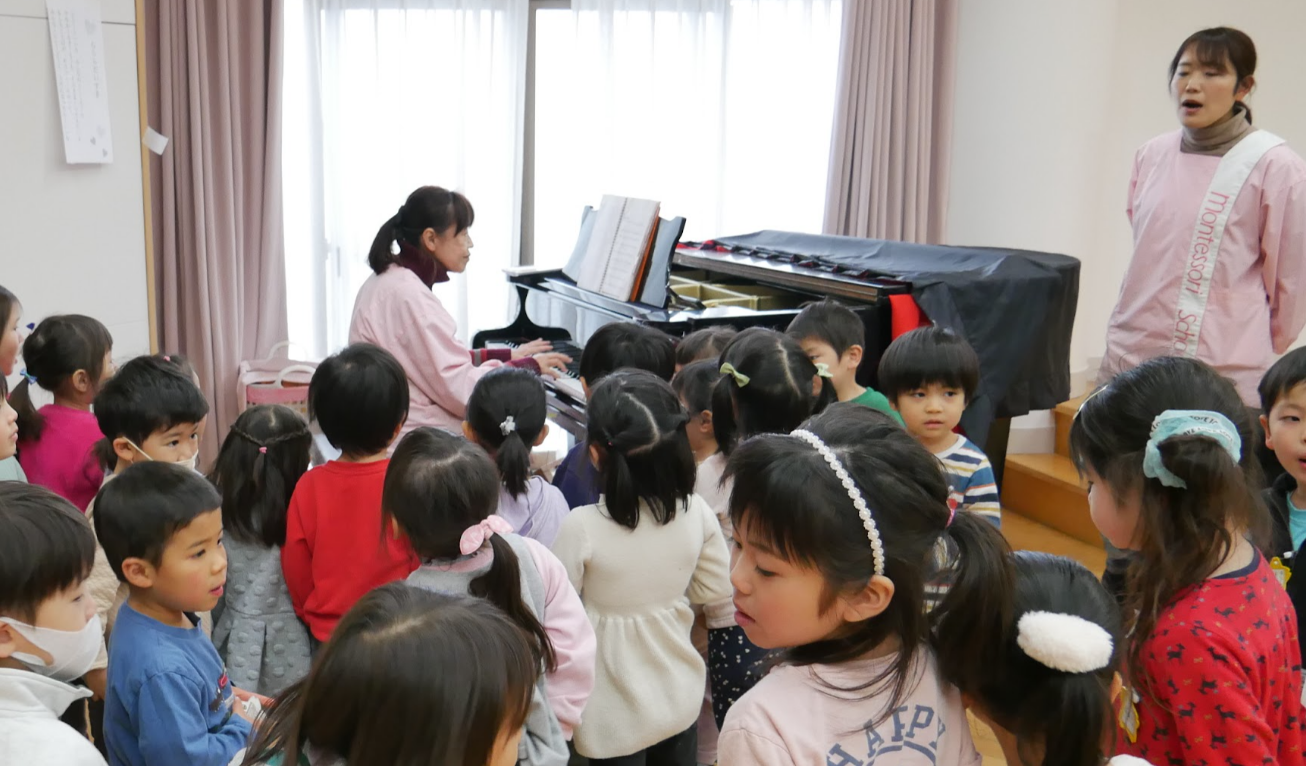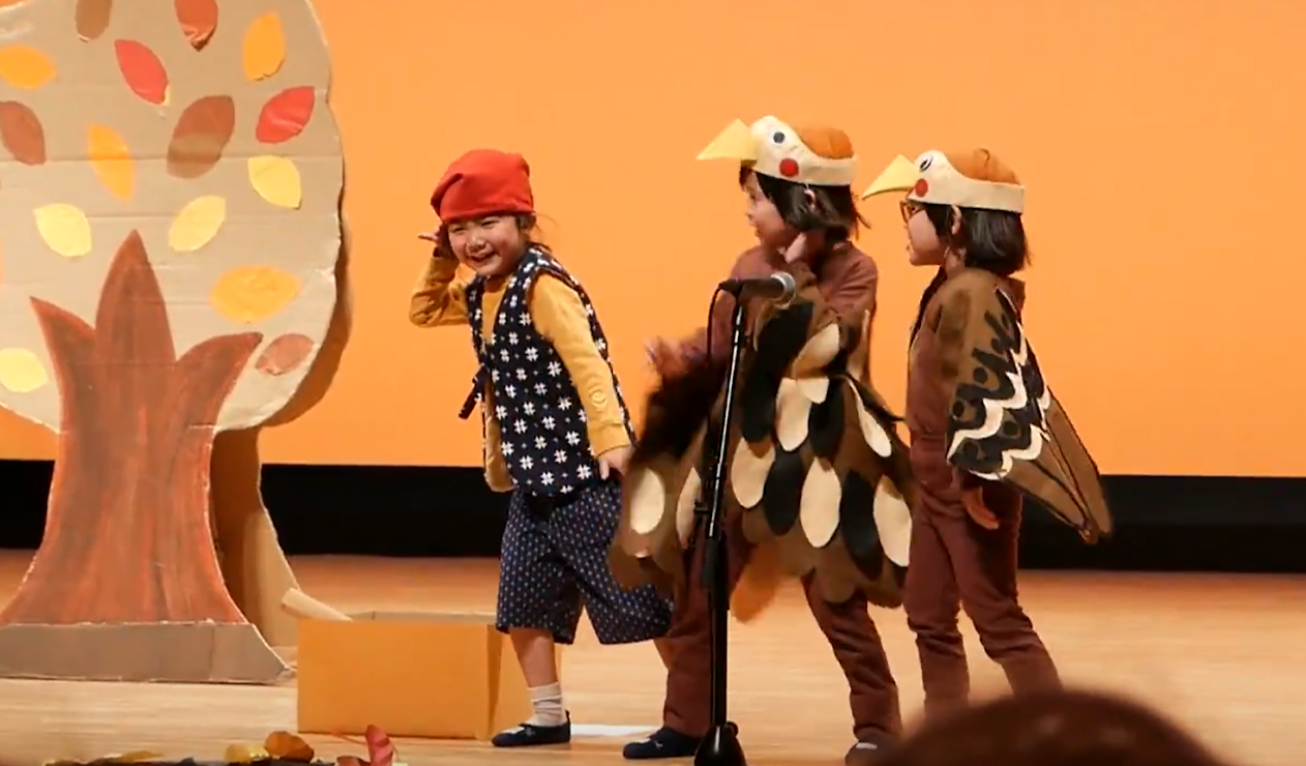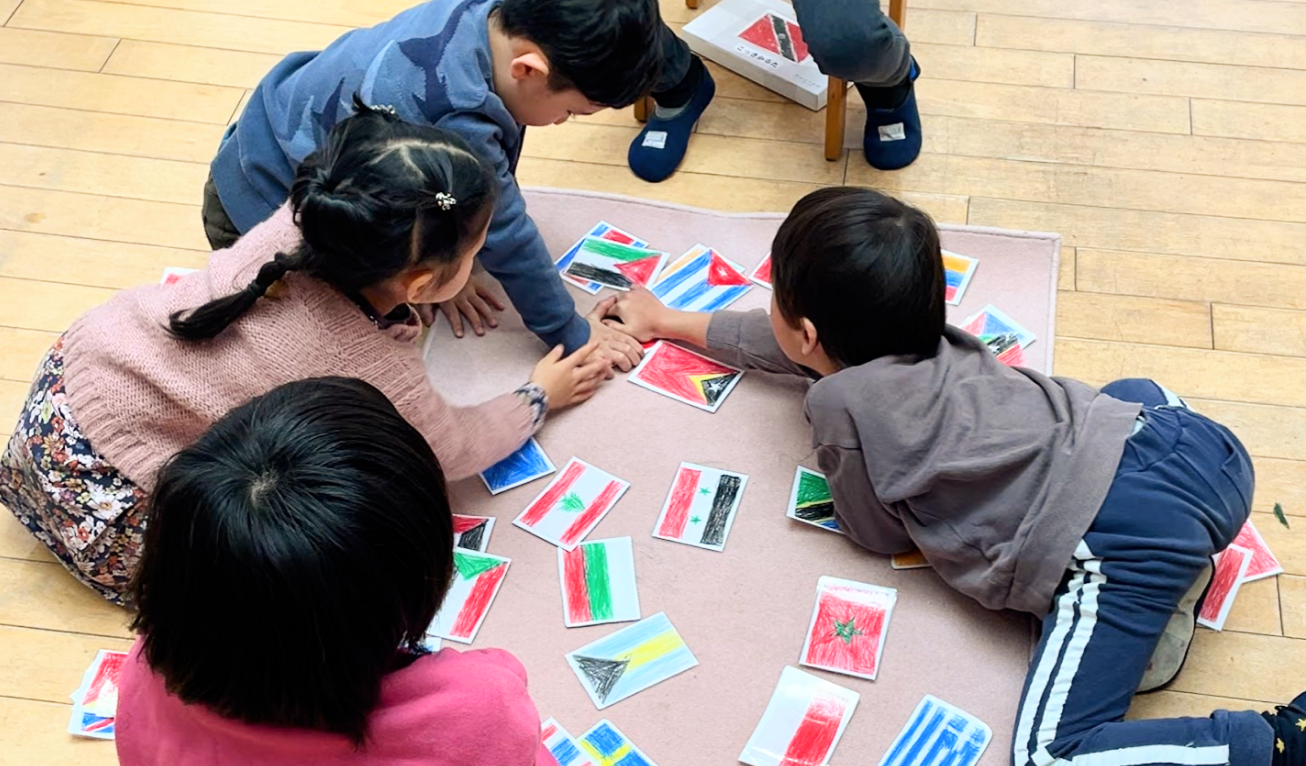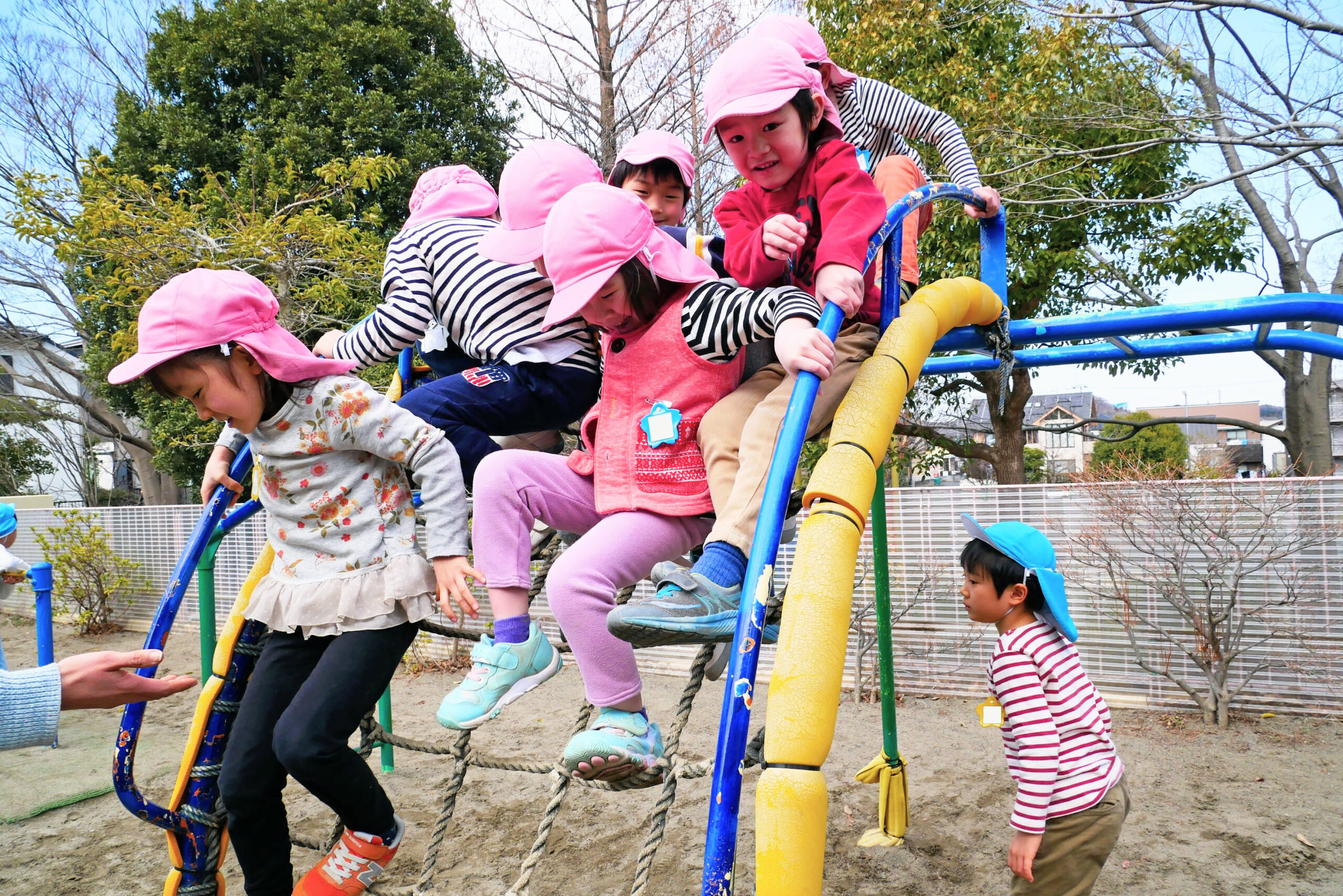Welcome to Yokohama Montessori School!
What is Montessori Education?
Montessori is a method of education that is based on self-directed activity, hands-on learning and collaborative play. In Montessori classrooms children make creative choices in their learning, while the classroom and the highly trained teacher offer age-appropriate activities to guide the process. Children work in groups and individually to discover and explore knowledge of the world and to develop their maximum potential.
The Yokohama Montessori
Experience
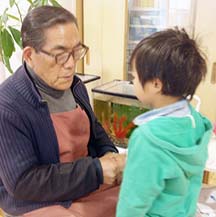
Respect–We honor each child
for who they are
and who they can become.
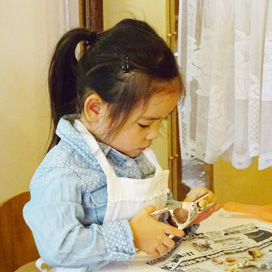
Montessori activities–help children develop order, concentration, coordination, and independence.
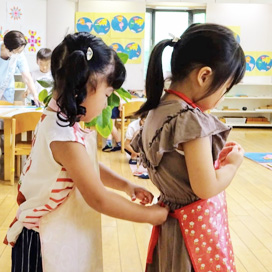
Mixed age classrooms–allow children to help others and learn from each other.
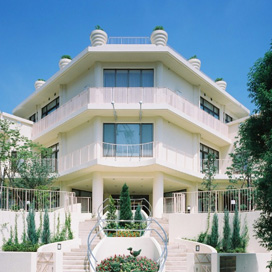
Prepared Environments–are designed to meet the physical and psychological needs of the child at each stage of development.
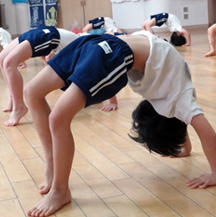
Balanced Education–We strive to achieve a balance of intellectual, social, emotional and physical growth of each child.
Help me to do it myself.
Importance of Early Childhood Education
Maria Montessori, who became the first woman doctor in Italy in 1896, has come to believe that each child is born with a unique potential to be revealed, rather than as a “blank slate” waiting to be written upon. She suggested that education is “help to life.” It was her answer through having worked tirelessly observing children, analyzing results and developing educational materials.
At Yokohama Montessori School, to help the child reach his or her full potential, we aim to offer the best guidance and environment so that the child can strive to be independent to grow and to learn.
The 3 to 6 year old child is undergoing among the most important periods for growth that includes process of self-construction and social development. They learn to care for themselves, help others and be conscious of their environment. The classroom is a microcosm, a vibrant community where children display, and are shown, respect and dignity.
The Yokohama Montessori Difference
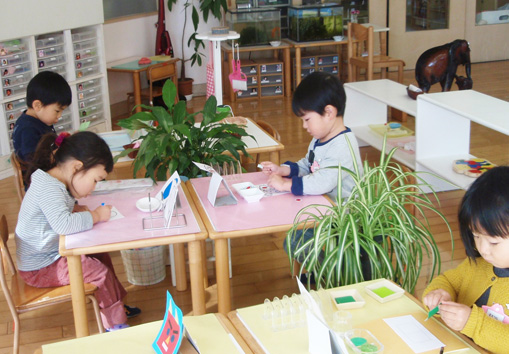
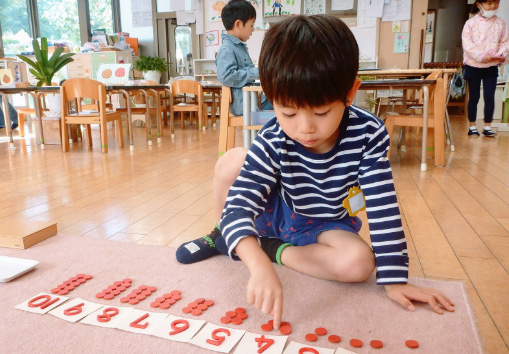
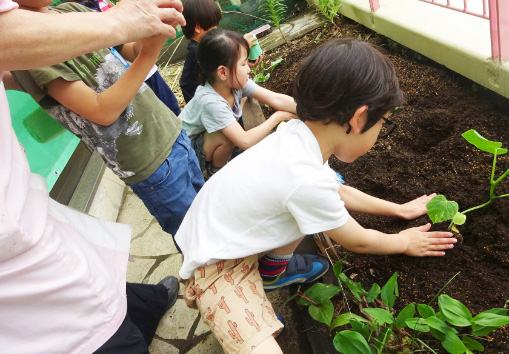
Montessori Curriculum
The Early Childhood classroom offers your child 5 areas of study: Practical Life, Sensorial, Math, Language, and Cultural Studies. What are the lessons in these areas?
Practical Life
Children learn by observing and imitating their parents’ every move. They have interest in cooking, setting the table, laundry, cleaning, and caring for plants. Whenever they can’t figure out how to do something, if you show them how to use the tool, they teach themselves by repeating and making mistakes to finally master it. These experiences of learning and achievement lay the foundation of the child’s character that leads to well-balanced development of body and mind as well as the basis for more academic work later in his or her life.
Sensorial
The period of 3 to 6 years old is an important period for cognitive development, which involves observing materials, sorting, comparing, and organizing. Montessori has developed sensorial learning materials that are design to enhance the child’s understanding of shapes, colors, textures, sounds, tastes and smells. Through repeatedly experiencing the process of challenging and resolving problems, it enables the child to develop the capacity to be active-minded, to sustain concentration over long periods of time, and to exercise sharp powers of observation.
Math
Through hands-on activities, children learn to identify numerals and match them to their quantity, understand place-value and the base-10 system, and practice addition, subtraction, multiplication, and division. They also explore patterns in the numbering system. With an exploratory approach, children do more than just memorize math facts; they gain a firm understanding of the meaning behind them.
Language
Language materials are designed to support children’s developing vocabulary, and to enable exploration of both written and spoken language. Working with the Tactile Letters enables children to recognize the characters we use to represent sounds, and they then learn to associate sounds with characters.
After first learning to compose their own written work, children go on to learn how to read the work of others.
Cultural Studies
A wide range of subjects, including history, geography, science, art, and music, are integrated in lessons in the cultural area of the curriculum. Children learn about their own community and the world around them. Discovering similarities and differences among people and places helps them develop an understanding and appreciation of the diversity of our world, and a respect for all living things.
Our Learning Environment
Children’s needs change as they move through stages of development. At each level of Montessori education, this difference is honored through the preparation of the classroom environment. The environment is prepared in every way for optimal development: physically, cognitively, socially and emotionally. By aligning the activities in the environment with what each child needs at any moment, Montessori prepared environments liberate children’s energy for growth and learning.
Montessori Classrooms
Children are encouraged to learn real life skills in a relaxed and comfortable Montessori-inspired environment. All classrooms at Yokohama Montessori have large windows that allow plenty of natural sunlight into the classrooms. Montessori classrooms are simple in design, yet rich in education. Perfect placement of materials allows the kids to fulfill their natural desire to learn. As the materials capture their attention, they will begin to explore their environment and discover the benefits of Montessori education for themselves.
We keep variety of plants with various colors and shapes, small animals such as goldfish, birds and rabbits in our school. Through the care and nurture of plants and animals, children build emotional intelligence, a sense of wonderment and a deep compassion for other living things. The lessons that are instilled in a child through caring for animals will remain with them for the rest of their lives.
We make our best effort to prepare the environment so that the children of 3 to 6 years old in the sensitive period, who are undergoing major sensorial development, can concentrate on their activities and get the best out of it.
Gymnasium
Our gymnasium is sunny and spacious. Children can enjoy various physical activities, practice for singing in chorus or musical instruments, or holding a community events such as art exhibitions.
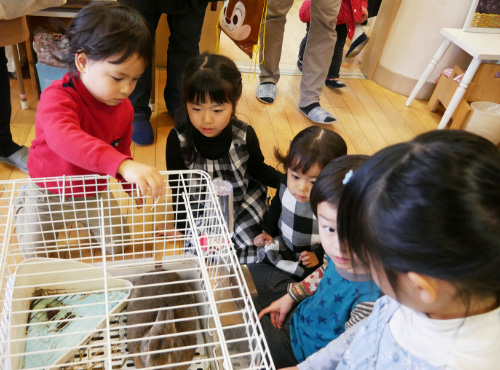
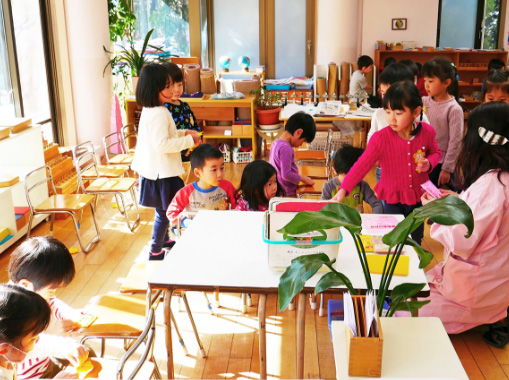
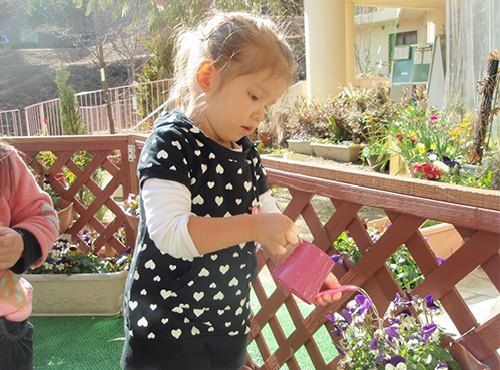
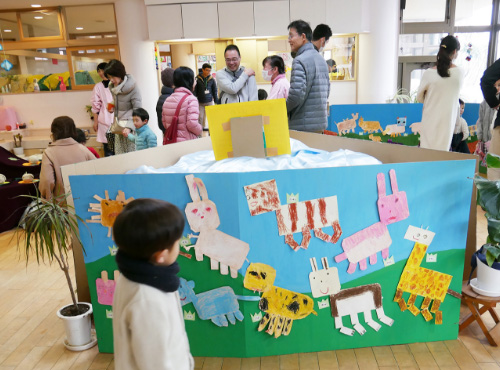
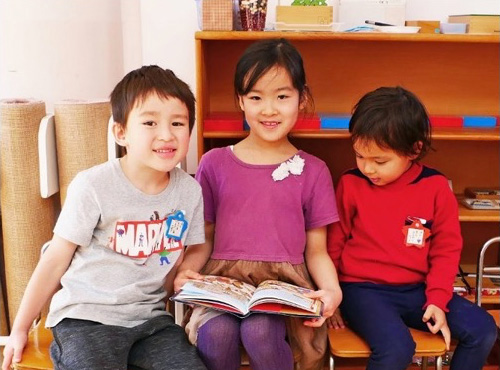
Mixed-age Classroom
Children learn a great deal simply by observing.
What are the benefits of “mixed-age classroom”?
For younger children, watching older children do their work not only provides a model for how to proceed, it motivates young students to practice and achieve mastery over their tasks. They look forward to the day that they can do that kind of work too, thinking to himself, “If they can do that, someday I will as well!”
Older students have the chance to become mentors to their younger classmates, while learning and practicing important leadership skills. Older students can learn the joy of teaching their younger peers.
By helping younger students, older students further learn their work. And they learn the foundations and pleasures of taking responsibility and being appreciated.
It’s worth noting that having a three-year cycle within a classroom is a more stable student and teacher experience. Students get deeply comfortable in a learning environment that fosters their long-term growth, and teachers have a chance to really get to know students over an extended period.
Our Experienced Teachers
with Deep Montessori Knowledge
The Montessori teacher’s role is different from the role played by traditional teachers. At Yokohama Montessori, teachers do not just teach but we try our best to be an understanding partner and a supporter to each individual child.
Our staff consists of younger teachers and seasoned senior teachers. Children can enjoy their daily life in a big family like environment.
All of our teachers have completed formal courses and training to become a Montessori instructor. We also regularly hold training courses and workshops, which often are lectured by Montessori experts invited from overseas such as Italy or the US, in our school building. Our teachers attend such workshops to update and share their skills and knowledge.
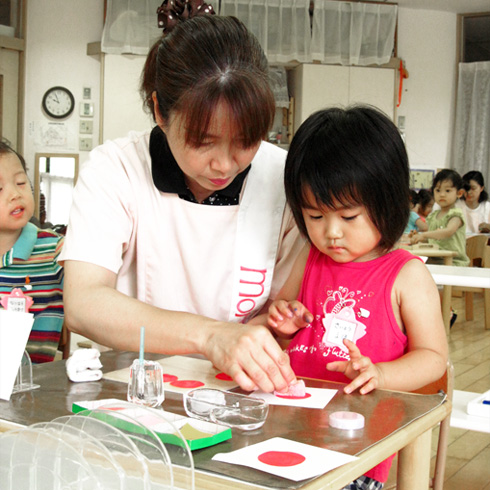
Respect for Diversity and Inclusion
Our Diversity and Inclusion Mission Statement:
Yokohama Montessori School welcomes a diverse, inclusive community and celebrates the uniqueness of all of its members as part of our hope for a peaceful world.
Contact and Directions
We’re located 5-minute walk from Kodomo-no-kuni kids theme park or its train station in northern Yokohama.
Come by car. We have parking lots for visitors.
5-14-1 Nara, Aoba-ku, Yokohama, Kanagawa 227-0038
TEL: 045-961-3487
info@montessori.ed.jp
 卒園者様ページ
卒園者様ページ

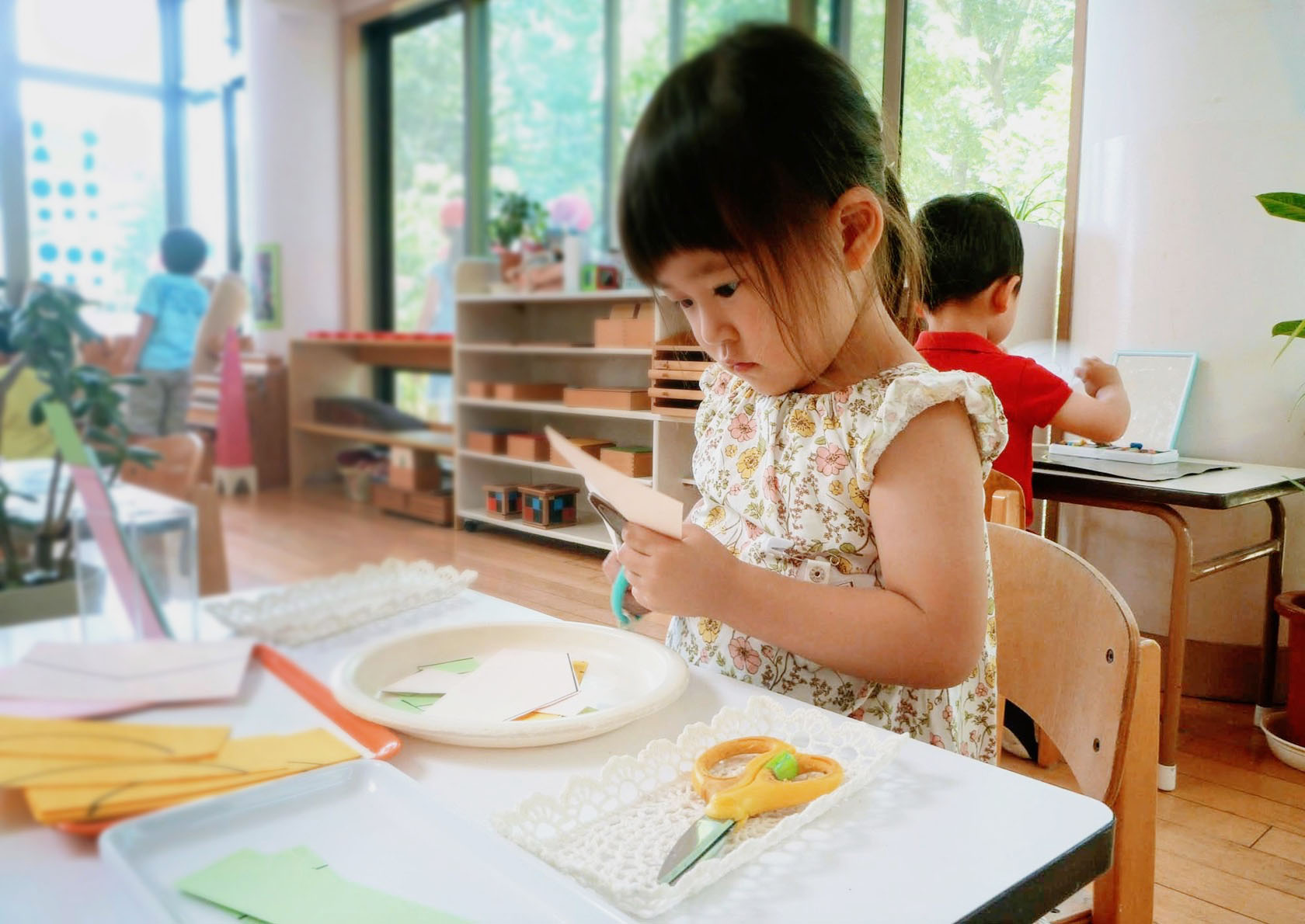

 幼稚園ブローシャー
幼稚園ブローシャー 入園までの流れ
入園までの流れ ご支援のお願い
ご支援のお願い 行事カレンダー
行事カレンダー